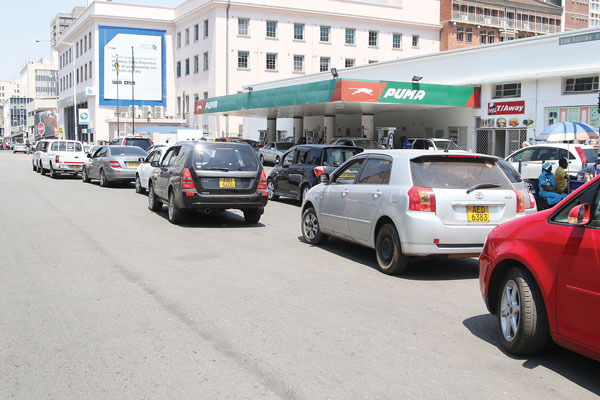
Guest column: Learnmore Zuze
Here is a folklore allegory: imagine a man with a huge rural family of 10 children and a wife to take care of.
The family knows that the man, as the breadwinner, goes on several hunting expeditions time and again to fend for his highly-expectant family, often taking from the few resources at home on his haunting jaunts. Although life remains tough for the young rural family, they somehow manage to get by. Things aren’t exactly as they should be, but in a way the family trudges on for some time.
Nonetheless, as time progresses, things really come to a head. Mealie-meal, which defines the basic food in the home and sustains the younger ones as porridge and sadza for the old slowly, but surely, begins to run out in the home. The unpleasant state of affairs heightens with each passing day until the supplies can hardly suffice; the home literally runs dry.
The younger ones wail day-in, day-out and clearly the family has a tragedy of humongous proportions on its hands. Neighbours also see the crisis, but they all stand aloof. The worst part, however, in the entire fiasco is that the man of the house remains tight-lipped in the face of the crisis, even continuing to draw from the few remaining resources at home to go on his endless hunting excursions.
The children have no clue what’s happening. In their limited understanding they think the mealie-meal troubles will soon be addressed, but the problem seems to have reinvented itself with vengeance this time around. With all the focus on him, the man of the house remains unfazed, oblivious to the scorching calamity in his house.
In essence, he astoundingly sets out to host a massive party for the village and extended family, where tonnes of mealie meal are set to be squandered in a day. The neighbours and community at large look bewildered while the catastrophe rages on.
Just a month ago, we all thought the crisis was gone, but the brutal truth is staring at Zimbabweans today. “Unrelenting” is the word; no other term does justice to describe the perennial fuel shortages that have continued to stalk Zimbabwe in the last months.
- Chamisa under fire over US$120K donation
- Mavhunga puts DeMbare into Chibuku quarterfinals
- Pension funds bet on Cabora Bassa oilfields
- Councils defy govt fire tender directive
Keep Reading
The fuel crisis in Zimbabwe is being intensely felt. The crisis continues to sink its teeth with the passing hour. The country is probably experiencing its worst fuel predicament ever since former President Robert Mugabe left power; perhaps the worst since 2008. We all agree that fuel is the lifeblood of an economy, allowing business to take place across borders. It, however, seems apparent that Zimbabwe is on auto-pilot, with no one to attend to a simmering paralysis.
It is extremely disheartening that there is deafening silence regarding the crisis from the “man of the house”, namely the government.
It is as if everything is in order, but honestly the impact is colossal. Two things: either the government is clueless about solving the problem or it simply doesn’t feel for its people. In my view, there is dignity in taking responsibility. It may not necessarily be within one’s purview to satisfactorily bring normalcy in such a crisis, but a statement would go a long way in calming agitation as opposed to silence. The fuel crisis is manifesting itself in a plethora of painful ways, from further paralysing the economy to a palpable violation of the rights of people. Prisoners in remand, for instance, are rotting in holding cells owing to the critical fuel shortage. Companies have had to suspend some vital operations and deliveries to align with the imposing tragedy of fuel unavailability.
The government of Zimbabwe must be called upon to honour its constitutional obligation that is enshrined in the founding values and principles Section 3(h) harping on good governance.
Surely, there isn’t any good governance when critical professions, such as those related to medicine, the courts and prison services worry about the next supplies of fuel. It is psychologically traumatising. All the giant fuel queues that have become the face of the capital city are made up of people who should be productively contributing towards national growth.
The queues are tying down national productivity. A medical professional in a functional country is mindful only of executing the task of saving lives, while one from Zimbabwe is constantly saddled with worry and nervous exhaustion from queuing for fuel. Government must, indeed, say something; either way this would pacify the nation.
Silence, by its nature, can never solve a problem of this magnitude. Is the government so overwhelmed that it can’t see the urgency in this problem? But it must be acknowledged that this is precisely why people vote leaders into power.
When people vote, they expect immediate attention to their problems. They have a constitutionally protected right to demand good governance. Impoverished, they may be, but Zimbabweans are alive to what constitutes violation of their rights. As things stand, there is no cue whatsoever as to the truth about the fuel crisis in Zimbabwe for the common people. The suffering continues in silence, while the government remains indifferent. Zimbabweans definitely deserve to know.
Mr President, the nation is waiting to hear from you.
Learnmore Zuze is a legal officer and writes in his personal capacity











